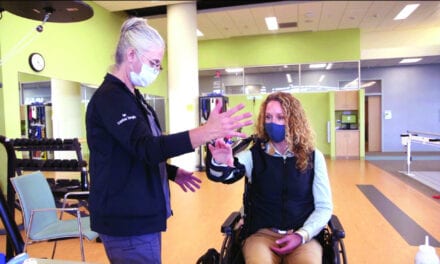Medicare beneficiaries recovering from stroke, hip fracture, or other conditions that require extensive therapy will soon be faced with arbitrary financial limits on their rehabilitative services, as Congress has failed to extend an exceptions process for services above the financial cap based on diagnosis, clinician evaluation, and judgment, says the American Physical Therapy Association (APTA), Alexandria, Va.
APTA says the lack of action by Congress is troubling, especially as it had the opportunity to attach a temporary extension to the caps exceptions process to the Department of Defense Authorization Act as it did with physician and provider payments, including those to physical therapists. APTA representatives say they are discouraged and disappointed that Congress is allowing an arbitrary annual cap on outpatient rehabilitation services to be placed on Medicare beneficiaries on January 1, 2010, noting this is clearly inconsistent with efforts by President Obama’s administration and the Democratic majority to reform health care by eliminating arbitrary limits imposed by private insurance companies. APTA says that Congress must hold the Medicare program to the same standard, noting further that insuring payments to providers, including physical therapists, while allowing this cut to rehabilitation services for seniors and people with disabilities during the health care reform debate is gravely disconcerting.
The Medicare therapy caps were originally adopted by Congress in the Balanced Budget Act of 1997. Since 1999, Congress has acted to prevent implementation of the caps by passing several moratoria and authorizing the exceptions process. An 18-month extension of the exceptions process was included in the Medicare Improvements for Patients and Providers Act (HR 6331), which passed July 15, 2008. The exceptions process is set to expire on December 31.
The Patient Protection and Affordable Care Act (HR 3590) and the American’s Affordable Health Choices Act (HR 3962), the Senate’s and the House of Representatives’ health care reform proposals, both contain provisions to extend the caps exceptions process. However, as it is unlikely that reform will pass by December 31, a temporary extension of the exceptions process would guarantee that Medicare beneficiaries would receive uninterrupted rehabilitative care until comprehensive reform legislation is passed.
[Source: APTA]




